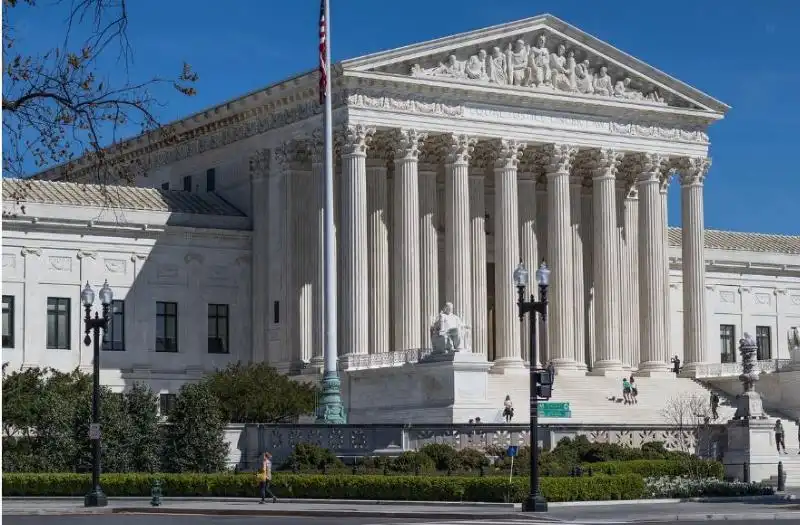Supreme Court ruling: Yes, the Supreme Court got it right
Joe Biden's mental decline affecting presidential briefings -report. Supreme Court grants presidents immunity for official acts to prevent legal hindrances.
On July 1, 2024, the Supreme Court made a significant decision regarding presidential immunity for official acts, building upon the precedent set in Nixon v. Fitzgerald. This ruling not only solidifies immunity for clearly defined official acts but also extends presumptive immunity for potentially questionable official actions. While presidential immunity was previously established in civil contexts, this decision marks a notable expansion to criminal prosecution for official acts.
In today's politically charged environment in the United States, accusations and investigations have been rampant across recent election cycles, often driven by political disagreements rather than clear legal violations. In such a climate, it is crucial for a president to be able to carry out their duties without constant legal threats looming over them.
For the presidency to effectively function as a separate but equal branch of government, it is imperative that the president is not constantly bogged down in legal battles defending every official act. If a president could be held civilly or criminally liable for actions taken in their official capacity, it would severely limit the independence of the Executive Branch. This would essentially reduce the president to a mere servant of Congress or the district courts, a scenario clearly not intended by the framers of the Constitution.
Justices Sotomayor, Kagan, and Jackson dissented, arguing that this ruling places the president above the law. However, this argument is ironic considering the significant degree of judicial immunity enjoyed by the Supreme Court itself. While judicial immunity differs in scope and nature from presidential immunity, it is a well-established concept that prevents the Court from being held liable for overstepping its bounds into legislative duties.
Without this ruling, a president operating in a politically volatile environment would constantly second-guess their actions out of fear of future legal repercussions. This hesitancy could hinder executive action and impede effective governance. Furthermore, presidents who outlive their terms may find themselves at risk of prosecution for actions that were once considered appropriate but are later deemed inappropriate by changing societal norms.
The Constitution already provides mechanisms for addressing presidential misconduct, such as the impeachment process and the Supreme Court's ability to declare unconstitutional actions. Therefore, the argument that a president is "above the law" is misleading. The ruling in Trump v. United States was not only appropriate but necessary to ensure that the president can fulfill their duties without unnecessary legal obstacles.
In conclusion, the Supreme Court's decision in Trump v. United States upholds the balance of power envisioned by the framers of the Constitution by affirming presidential immunity for official acts. This ruling is crucial in today's political climate, where the weaponization of the judicial system for political purposes underscores the need for clear guidelines on presidential immunity. By allowing the president to carry out their duties without constant legal threats, the Supreme Court has preserved the functionality of the Executive Branch while ensuring accountability through existing mechanisms for addressing presidential misconduct.











Comments on Supreme Court ruling: Yes, the Supreme Court got it right